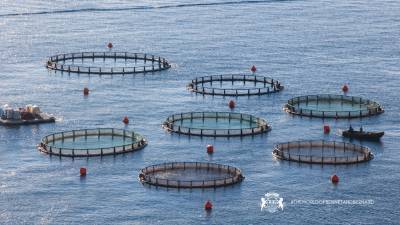KOCHI, 26 May 2024: Marine fishery experts have emphasised the need for exploring the immense potential of the under-utilised mesopelagic resources within the Indian Exclusive Economic Zone (EEZ).
They were speaking at a workshop on sustainable harvest and utilisation of mesopelagic fishes organised by the Mangalore Regional Centre of ICAR-Central Marine Fisheries Research Institute (CMFRI) on Friday.
Oceanic mesopelagic zone occurs 200-1000 metre below the sea level, and is home to several small fishes that play key roles in ecosystem dynamics. Globally the most abundant vertebrates, mesopelagic fishes including lantern fishes are largely unexploited marine resources.
Majority of these fishes are not used for direct human consumption owing to their high lipid or wax ester content. According to marine scientists, these fishes are a good source of protein, lipids and minerals, which can be used to advantage in fishmeal industry for poultry and animal feed and as crop fertilizers.
The experts are of the view that a pilot study should be carried to estimate accurate potential yield estimates of these fishes and to understand subsequent factors including the economic viability for the sustainable utilisation of these resources.
Government Support
Speaking at the workshop, Ms Neetu Kumari Prasad, Joint Secretary to the Department of Fisheries, Govt. of India pledged government support for entrepreneurship initiatives aimed at the sustainable utilization of mesopelagic resources. “In government schemes, there are options to develop mechanisms for utilising these fishes. Offshore resources are poorly explored. We should plan to move fishing to beyond territorial waters and utilise the untapped resources within the EEZ”, she added.
Dr B Meenakumari, former Chairperson of the National Biodiversity Authority, who inaugurated the workshop said effective harvesting techniques should be developed to sustainably utilise this untapped potential.
Developing suitable harvest methods and assessing economics of fishing operations, developing suitable post-harvest protocols and assessing the utilisation of by-products from the mesopelagic fishes are required, she said.
“These resources offer significant economic opportunities”, said CMFRI Director Dr A Gopalakrishnan. “According to CMFRI’s rough estimate, there is a harvestable potential of 1.6 million tonnes of mesopelagic resources available in the Indian EEZ.
However, in-depth studies such as accurate mapping of these invaluable resources, economics of sustainable harvest and post-harvest utilisation are needed to explore their use in the fishmeal industry and for the development of cosmetic products derived from waxy esters found in these fish”, he said, adding that a policy document is also highly necessary for the sustainable utilisation of these resources.
Northern Arabian Sea a hotspot
Highlighting the immense potential of these resources in the Indian Ocean region, Dr Shobha Joe Kizhakudan, Head of the Finfish Fisheries Division of CMFRI said the Northern Arabian Sea emerges as a hotspot for lantern fishes, presenting right opportunities for exploitation.
“While these catches have primarily been utilized for fish meal and oil production, there exists considerable potential for diversifying their commercial applications”, she said.
Dinesh Kallar, Director of Fisheries, Govt. of Karnataka, Dr Manju Sebastine, Dr M P Ramesan, Dr Sujitha Thomas and Dr Rajesh K M spoke on the occasion. Dr B Meenakumari, Dr Pravin P and Dr Prathibha Rohit were the panelists during the technical discussions.




















